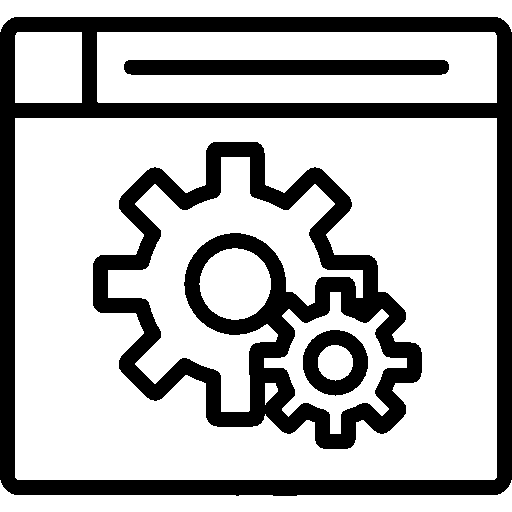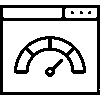- Products
- Platform
- Solutions
- Customers
- Support
- Pricing
 Website & Mobile & E-commerce
Website & Mobile & E-commerce
 CRM
CRM
 Operation & ERP
Operation & ERP
 Productivity
Productivity
 Support
Support
 Community
Community
 Learn
Learn
Application Support Point

Follow all the account movements of your current customers, check their date-based status.
- Version History
- Application Features
- User Manual
- FAQ
- Community
Current Account Management
You can effectively manage customer and supplier accounts and monitor their payable and receivable status.
You can create a new current account by filling in customer information.
You can make the necessary changes by selecting the current account you want to edit.
You can keep track of your accounts more regularly by dividing them into different categories and defining statuses such as buyer, seller, and employee.
Financial Transactions and Tracking
You can track all your payable, receivable and proforma transactions in detail.
You can automatically apply a late payment interest to overdue debts.
You can edit collection slips, bulk upload and track payment data.
You can manage your income and expense receipts in an orderly manner.
You can reduce workload by automatically closing documents.
Reporting and Notification Management
You can evaluate your financial situation with date-based analysis and review payments and collections.
You can view overdue debts and related interest rates.
You can send automatic SMS and e-mail notifications regarding current accounts and track notification logs.
You can monitor the notifications sent through the records and easily access past notifications.
General Configuration and Settings
Users can customize the color of the app.
You can make your transactions more organized by setting automatic incrementing numbers for records.
You can manage your data in more detail by defining custom metadata fields for accounts and transactions.
You can establish a more systematic structure by categorizing your accounts and determining transaction types.
You can create reference codes to uniquely identify and track records.
You can edit user permissions in detail and provide secure data access.
You can track and view authorized users who can access the application.
Definition
Current is an application used by businesses to manage their financial relationships with their customers and suppliers. This application allows companies to track their receivables and payables, record customer and supplier transactions, and analyze their financial situation in detail.
Aim
The purpose of the Current application is to help businesses manage their cash flows effectively by organizing their financial processes. In this way, companies can control their income-expense balances, optimize their payment and collection processes, and make healthier financial decisions.
Key Benefits
- Current applications allow businesses to track all their financial transactions with customers and suppliers on a central platform. This makes transactions more organized and traceable.
- Current applications provide access to accurate and up-to-date information at all times by instantly updating the financial data of businesses. This improves decision-making processes and reduces financial risks.
- It helps manage cash flow effectively. By tracking their receivables and payables, businesses can better plan their payment and collection processes.
- By providing advanced reporting and analysis tools, it allows businesses to evaluate their financial performance and make strategic decisions for the future.
- By recording current applications, customer and supplier information in detail, it helps businesses manage these relationships more effectively.
Current Application Login Screen
This is the home screen of the Current application.

View Current Accounts
This is the screen where current accounts are displayed.

On the Current Accounts screen, Current Account Number, Customer Name, Sales Representatives, Pro forma, Total Balance (TRY) , Average Maturity , Status, Final Process, Balance (TRY) information is listed as a table.
Branch Current Accounts
This is the screen where branch current accounts are displayed.
If you have a branched organization structure, current accounts can be separated by branches. Branch definition by company is made from the settings.

On the Branch Current Accounts screen , Order, Current Account No. Customer Name, Sales Representatives, Pro forma, Total Balance (TRY) , Average Maturity, Situation, Last Transaction , Balance (TRY) information is listed in a table.
Categories
This is the screen where categories are displayed.
Category definitions are made and followed to classify current accounts.

On the Categories screen, Order, Current Account Number, Customer Name, Sales Representatives, Pro forma, Total Balance (TRY) , Average Maturity , Status, Final Process, information is listed as a table.
Late Payment Interest
This is the screen where the delay interest is displayed.

Current Code on the Delay Interest screen, Current Name, Total Debt, Total Receivable, Balance, Average Term of Balance, Balance Delay (Days), Late Payment Interest Rate, Late Payment Interest, Balance + Late Payment Interest information is listed in a table.
To Inform
Information is divided into three categories: Current Accounts, SMS Log Records, and E-mail Log Records.
Current Accounts

On the Current Accounts screen , Order, Customer Name , Proforma, Balance, Balance (TRY), Balance (USD), Balance (EUR), Balance (CHF), Total Balance (TRY), Situation, E-mail and SMS information are listed in a table.
By clicking on the icons in the E-mail and SMS columns, an informative e-mail/SMS is sent to the relevant client.
SMS Log Records

On the SMS Log Records screen, the relevant CRM, Recipients, and Date information are listed in a table.
Successful SMS messages are listed in green, unsuccessful SMS messages are listed in red.
Email Log Records

On the Email Log Records screen, the relevant CRM, Recipients, and Date information are listed in a table.
Analysis
Analyses are divided into two: Date-Based Current Status and Payment / Collection Report.
Current Status Based on Date

In the Date Based Current Status screen, Order, Current Code, Customer Name, Balance (USD), Balance (EUR), Balance (TRY), Total Balance (TRY) information is listed in a table.
Payment / Collection Report

On the Payment / Collection Report screen, Company Name, Total Balance, Total Balance Due, Past Due Balance, Overdue Due Average, Delay (Days), Undue Balance, Undue Balance Average, Remaining Days information is listed in a table.
Transactions
From the Transactions screen, Rebalance All Accounting Modules, Rebalance All Current Accounts, Load Collection, Load Payment, Add Receipt, Add Cash Transfer operations are performed.
A sample Excel template is provided for the upload process and the data to be transferred is prepared and uploaded according to the sample template.

Configuring Personal Settings
Kişisel Ayarlar, kullanıcının bir uygulama üzerindeki deneyimini özelleştirmesine olanak tanır. Kullanıcının kendi tercihlerine göre çeşitli ayarları yapılandırabilmesini sağlar.

Cari uygulamasını özelleştirmek için Listeleme Ayarları ve Sütunlar ayarları yapılır.
Listeleme Ayarları
Detay Gösterim Yöntemi; Sekme veya Popup seçilir. Cari kartı seçime göre açılır.
Varsayılan Takvim Filtresi; Günlük, Haftalık, Aylık, Senelik veya Tümü olarak seçilir. Cari listesinin seçilen takvim filtresine göre listelenmesini sağlar.
Varsayılan Tarih Filtresi; Kayıt Tarihi veya Güncelleme Tarihi seçilir. Cari listesinin seçilen tarih filtresine göre listelenmesini sağlar.
Sayfalamada Kayıt Sayısı; 25, 50, 100, 250 veya 500 olarak seçilir. Cari liste sayfasında gösterilecek kayıt sayısının seçimi yapılır.
Sütunlar
Cari liste sayfasında gösterilecek tablo başlıklarının seçimi yapılır.
Sıra
Cari Hesap No
Müşteri Adı
Satış Temsilcileri
Bakiye
Toplam Bakiye
Ortalama Vade
Durum
Son İşlem
Yukarıda listenenen sütun maddeleri tercihe göre seçilerek kaydedilir.
Filtering
Filtreleme ayarları, bir sistemde veya uygulamada belirli kriterlere göre verileri sınıflandırmak için kullanılır. Bu ayarlar, kullanıcıya yalnızca ilgili veya uygun içerikleri sunmaya yardımcı olur.

Filtreleme ayarları ekranında Müşteri Tipi, Müşteri Temsilcisi, Hesap Kategorisi, Durum, Bölge, Satış Temsilcileri, Ülke, İl, ilçe, Metadata, Referans Kodu, Filtre, Muhasebe Kodu alanları seçilerek filtreleme yapılır.
Sıralama; Cari Kısa Adı, Cari Adı, Bakiye, Son İşlem veya Muhasebe Kodu seçilerek sıralama yapılır.
Analizler Filtre

Filtreleme ayarları ekranında Durum, Referans Kodu, Cari Statü, Müşteri Tipi, Hesap Kategorileri, Müşteri Temsilcisi, Satış Temsilcisi alanları seçilerek filtreleme yapılır.
Adding a New Current Account Record
To add a current account, search for Person/Company in CRM (Customers application).

Person / Company is selected as a result of the search.

The current exchange rate to open an account is selected and if the opening balance is available, click Add Opening Balance. Transaction Type, Amount, Transaction Date are entered. The selected Person / Company is saved.
Simple Current Status Editing
Basit cari durum ekranında cari hesaplarını özet şekilde görüntülenir. Düzenleme çubuğuna tıklanarak Alacak ve borç bilgisi girilir. Otomatik olarak Bakiye, Durum ve Toplam bilgisi hesaplanarak görüntülenir.

Basit Cari Durum ekranındaki tablo başlıklarının açıklamaları şu şekildedir:
Sıra; Hesap numarasının sırasını gösterir.
Hesap No; Hesabın benzersiz numarasıdır.
Borç; Cari borç gösterir.
Alacak; Cari alacağı gösterir.
Bakiye; Borç ve alacağa göre bakiye gösterilir.
Durum; Carinin durumunu gösterir. Borçlu veya alacaklı olarak gösterilir.
View Current Accounts
This is the screen where current accounts are displayed.

On the current accounts screen, Date, Maturity Date, Movement Code, Document Code, Description information is listed in a table. Inter-Current Transfer, Add Receipt transactions are performed.
Inter-Current Transfer

To make an Inter-Current Transfer, Source, Target, Transaction Date, Reference Code, Amount, Saved Exchange Rates, Description information is entered.
Add New Receipt

To add a receipt, the necessary data is entered from the Transaction Code, Reference Code, Independent Section, Transaction Category, Transaction Type, Amount, Transaction Date, Maturity Date, Description, and Receipt Rates information.
Current Account Information
This is the screen where the Current Account information is displayed.

The Current Account information screen includes Risk Management, Current Account Number, Current Currencies, Current Status, Contact Information to be Used in Notifications, Default Maturity Day, Average Maturity Day information.
Customer Branch Sub Accounts
This is the screen where Customer Branch Sub-Accounts are displayed.

Default Accounts
Varsayılan hesapların görüntülendiği ekrandır.

Varsayılan Hesaplar ekranında Para birimi seçilir. Tüm düzenlemeler tamamlandıktan sonra Kaydet tuşuna tıklanarak işlemler kaydedilir.
View and Add Bank Accounts
This is the screen where bank accounts are displayed.

On the Bank Accounts page, Account Holder Name, IBAN, Bank Code/Name, Branch Code/Name, Account Number information is listed in a table.
A bank account is added by pressing the Add New button.

To add a bank account, enter Account Information and Other Account information. After all transactions are completed, click the Save button to save.
View and Add Contact Information
This is the screen where contact information is displayed.

The Contact Information screen displays Customer Contact information in a table format. Contact information defined for the customer card is listed.
Click the Add New button to add contact information.

To add contact information, Address Information, Email, Other Information, Phone Information, Social Media information are entered as preferred. After all operations are completed, it is saved by pressing the Save button. It can be deleted by pressing the Delete record button.
To Inform
Notification is done in two ways: Notification by E-Mail and Notification by SMS.
Send

The message to be sent in the e-mail is displayed.
This is the screen where E-mail Log records are displayed.

The Notification via SMS screen includes Send and SMS Log Records information.
Selecting Categories
Categories are selected according to preference. Saved by pressing the save button.

Metadata
This is the screen where metadata fields are displayed.

Keyword and Value information is entered on the Meta Data screen. The file is selected and loaded by pressing the Load with Excel button. After all operations are completed, it is saved by pressing the Save button.
Log Records
This is the screen where log records are displayed.

On the log records screen, the transactions performed are listed in a table with the User Name, Description, Transaction Status and Date information.
Transactions
The current account can be deleted, made passive, or suspended from the transactions screen.

Configuring General Settings
Settings are customized by selecting the settings to be used according to the company's preference from the General Settings menu.

General Settings
The application color is selected according to the company's preference.
Account Categories are available.
Movement Categories are available.
Simple Current Account Mode is a mode that displays only debit-credit-balance information, independent of current transactions.
Company Code can be added as Current Code.
Referral Codes can be used.
Sub Account Feature is available.
Accounts can be distributed according to branches (Branch Currents).
Sales representatives can only see the records of the companies they represent.
Current Status
-Available Current Statuses; Buyer, SellerPersonnel, Advance, Other can be selected from the intermediate. Default Variable Status can be selected.
Meta Data can be used in Current Accounts.
Meta Data can be used in Current Transactions.
Risk analysis can be done using Risk Management.
VAT information on the document can be used.
By displaying proformas in lists, it enables the display of proformas in addition to the transactions that have taken place in current account statements.
-Draft Proformas, In-Process Proformas, Completed Proformas, Cancelled Proformas

Communication becomes easier by using the e-mail sending feature.
SMS sending feature can be used.
Automatic Document Closing is available.
Delay Compensation is available.
While searching accounts, you can also search transactions.
When adding a receipt, Income / Expense selection can be made mandatory.
The Advanced Authorization feature is available.
Average Term and Late Payment Interest
When these options are selected, the records are processed only once.
Average Maturity is selected.
The Average Maturity Date can be adjusted.
Late Payment Interest may be used.
The Late Payment Interest Product is displayed.
The late payment interest rate is determined as a percentage.
Current Account Creation Control
Transactions to be performed on records without a current account; Create Current Account, Create Current Account, Use Predefined Current Account
Collection Receipt Settings
Can show Current Status.
Restriction can be used for motion recording.
Add Account Category Definition

The title of the category is included on the Account Category Definitions screen.
A category is added by pressing the Add New button.

To add a category, enter the Title information. After all operations are completed, click the Save button to save.
Motion Category Definitions

On the Account Category Definitions screen, Order and Title information are listed in a table.
The account category is added by pressing the Add New button.

To add an account category, a Title and Sequence number are given. Income Item, Delay Compensation Income Item, Expense Item Delay Compensation Expense Item are selected according to groups. After all transactions are completed, they are saved by pressing the Save button.
Adding a Referral Code

On the Reference Codes screen, Short Code, Title, Default, and Sequence information are listed in a table.
New codes are added by pressing the Add New button.

To add a reference code, enter the Short Code, Title, Default, VAT not applied, Order, Color information. After all operations are completed, click the Save button to save.
Adding a Default Meta Data Definition
Current Accounts

Metadata definitions are made to be used in current cards. Filling in can be made mandatory and metadata definitions can be shown in the current list.
Current Transactions

Metadata definitions are made to be used in current transactions. Filling in can be made mandatory and metadata definitions can be shown in the current list.
Editing Advanced Permissions
Personnel authorizations are organized. Advanced authorizations are given to view, add, and edit personnel-based current records.

Email Form Settings
This is the screen where the Mail Form settings are displayed.

On the Mail Form Settings screen, the Mail Form, Form Key, and Mail Account information are listed in a table. When you click on the listed information, general information opens.

On the general information screen, Email Account, Mail Template, Copy Recipients, Blind Copy Recipients, Mail Sending Status, and Label information are edited.
SMS Form Settings
This is the screen where SMS Form Settings are displayed.

On the SMS Form Settings screen, SMS Form, Form Key, SMS Account information is listed in a table. When you click on the listed information, general information opens.

SMS Header, SMS Message, SMS Sending Status information is updated on the General Information screen.
Automatic Numbering
Automatic Numbering allows a certain field to be automatically incremented for each new record. Fill in the Suffix and Suffix fields as desired or leave them blank.

Give a starting value to the Auto-Increment Number field. For example, if you give 1000, the following numbers will go as 1000, 1001, 1002...
When a value is entered, a preview is displayed on the right for information purposes.
View Authorized Users
On the Authorized Users screen, users are given the required authorizations and saved.

-
How do I add a current record?
Click on the "Add New" button within the application. A new current account can be added from the "Add Current Account Record" screen that opens.
-
How do I edit an existing current record?
To edit a current account record, select the relevant current account information and click the "Edit" button. You can edit the necessary fields on the "Current Account Record Editing" screen that opens.
-
What is the difference between active and passive current accounts?
Active current accounts refer to accounts that you continue to trade in. Passive current accounts include accounts that have stopped trading.
-
Do I have to add an opening balance when adding a current account?
No, adding an opening balance is optional. However, you can use the "Add Opening Balance" option if available.
-
If I delete a current account, will the data be lost completely?
No, deleted current accounts can be viewed from the "Deleted Current Accounts" screen.
-
How can I access current situation analysis reports?
On the "Analysis" screen, you can review date-based current status and collection/payment reports.
-
How can I view late payment interest reports?
You can view the overdue debts and related interest rates from the "Delay Interest" screen.
-
Can I send notifications to current accounts via SMS or e-mail?
Yes, you can send notifications by clicking on the SMS or e-mail icon of the relevant current account.
-
How can I change the color of the app?
You can choose your preferred color by going to the "Set App Color" section in Settings >> General Settings or enter the color code manually.
-
How do I define account categories?
You can define new categories from the Settings >> Account Category screen and view these categories on the current account editing screen.
-
How do I add action categories?
You can define categories by entering a title and sequence number by clicking the "Add New" button on the Settings >> "Motion Category Definitions" screen.
-
How can I add referral codes?
From the Settings >> "Referral Codes" screen, click on the "Add New" button. You can create new referral codes by entering the shortcode, title and order information.
-
How do I create default metadata definitions?
You can define mandatory metadata fields for current accounts or current transactions from the Settings >> "Default Metadata Definition" screen.
-
How can I view authorized users?
From the Settings >> "Authorized Users" screen, you can see all users who have access to the application and edit the authorizations.
-
How can I set up SMS and email notifications?
You can edit templates and configure automatic notification sending from Settings >> "SMS Form Settings" and "E-mail Form Settings" screens.
-
How does automatic numbering work?
You can specify automatic incrementing numbers for each new record with the Settings >> "Automatic Numbering" option. You can start the process by entering the starting number.
-
How to enable risk management?
You can follow risk analysis from the current account card by activating the "Use Risk Management" option on the Settings >> General Settings screen.
Questions
Ask questions and get answers from other Entranet users.


















